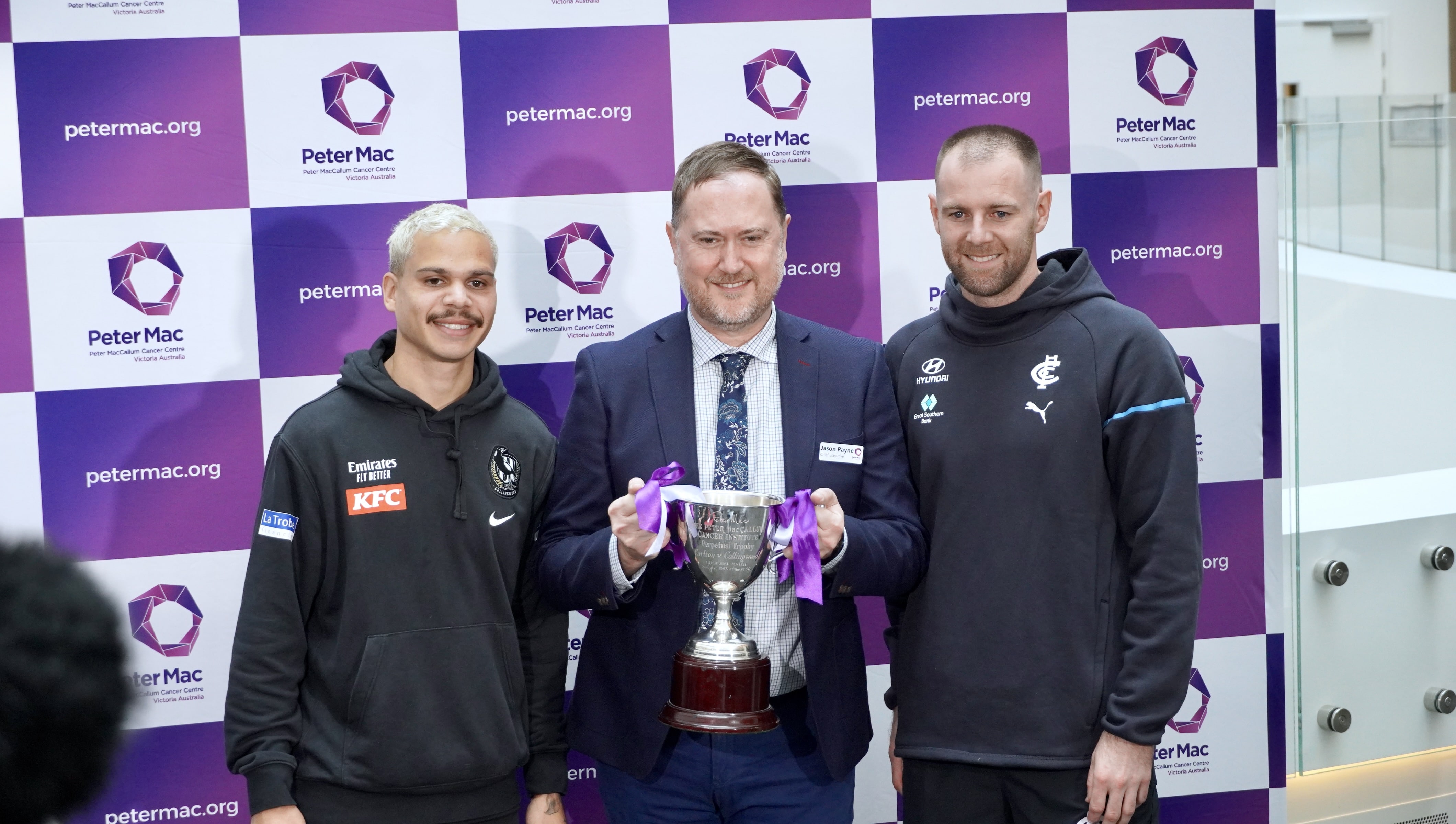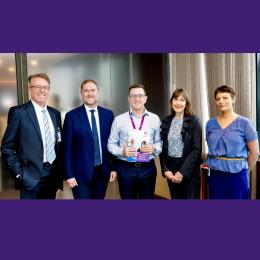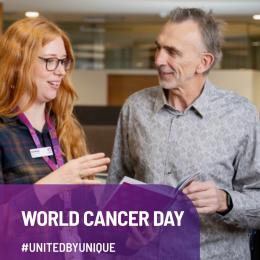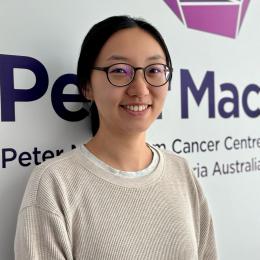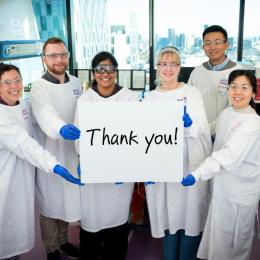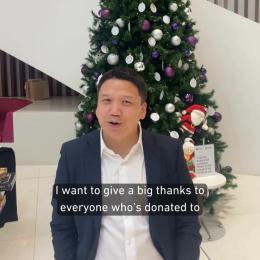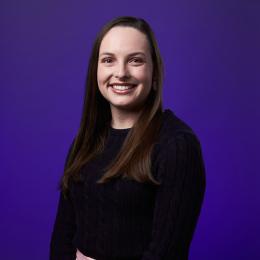The pain wasn’t Anna’s wisdom teeth. It was cancer.
05 June 2024
Before her diagnosis, Anna says, she and her partner Sian were happily “just doing life”. But their world was shattered by three simple words: ‘you have cancer’.
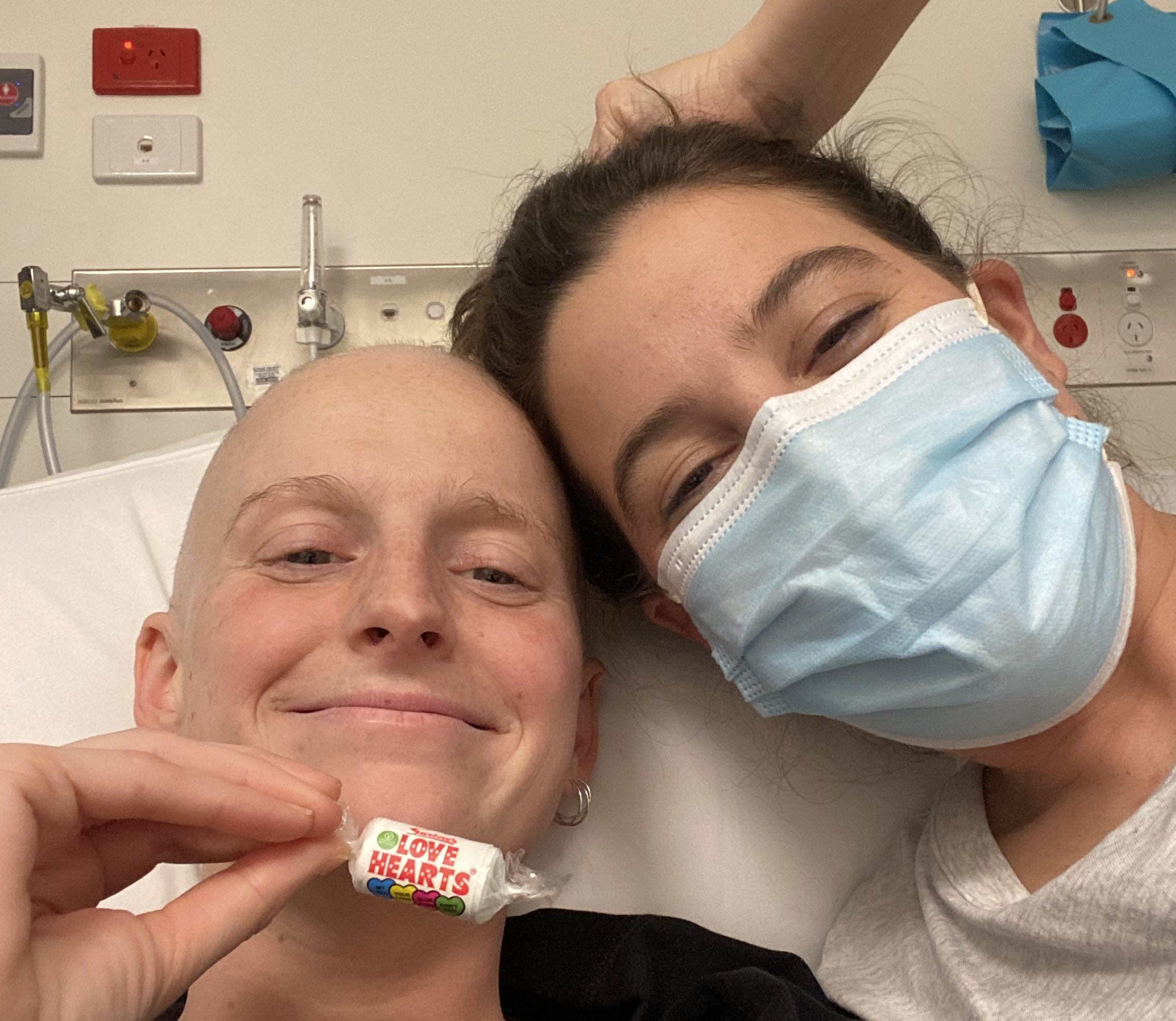
At the age of 29, Anna was fit and healthy, going for regular 10k runs with Sian. She dabbled in pottery, was renovating her apartment, and was joyfully planning a European holiday.
Her life was interrupted when she began experiencing a pain in her jaw that simply wouldn’t go away.
It turned out to be an aggressive form of cancer called Ewing sarcoma. And a subtype so rare only 90 people have ever been diagnosed with it in that part of the body.
To survive, Anna needed cutting-edge treatment, backed by world-leading research. She received it at Peter Mac.
Anna’s treatment was tailored to her rare form of cancer. It included chemotherapy and targeted radiation. It was tough and meant Anna was unable to eat solid food for months.
But thanks to that treatment – and the kindness of Peter Mac supporters – Anna is now a sarcoma survivor.
They didn’t think it was anything.
At first, Anna and her doctors thought the pain was caused by her wisdom teeth or a chronic sinus infection. But even after having her wisdom teeth removed, the pain kept getting worse. Over the next few months, Anna began to lose her hearing and the pain was so bad that she couldn’t sleep.
“Even after having my teeth out and after losing my hearing in February, I was still having more jaw pain, so I went back to my surgeon. They just didn't really think that it was anything,” says Anna.
“But it kept getting worse and I was having really bad congestion issues and it got to the point where I was not sleeping. I couldn’t lie down without it being really, really painful, so I was up all night.”
After telling her doctor of her worsening symptoms, she was sent for a CT scan. Anna recalls things moved very quickly after that.
“I got a call from the radiologist. At 7pm on a Sunday night. It was weird. He told me to get to hospital – tonight,” Anna said.
Alarm bells were ringing for her partner Sian, as well.
Sian remembers, “I could tell that the person on the phone was concerned, but he wasn't going to tell us exactly what he thought it was. He just said it was a nasty infection in there and they'll probably start you on a drip tonight, so go to the hospital.”
Anna’s and Sian’s worst fears were to be confirmed. Scans revealed Anna had a worrying 5-centimetre mass, deep in her face.
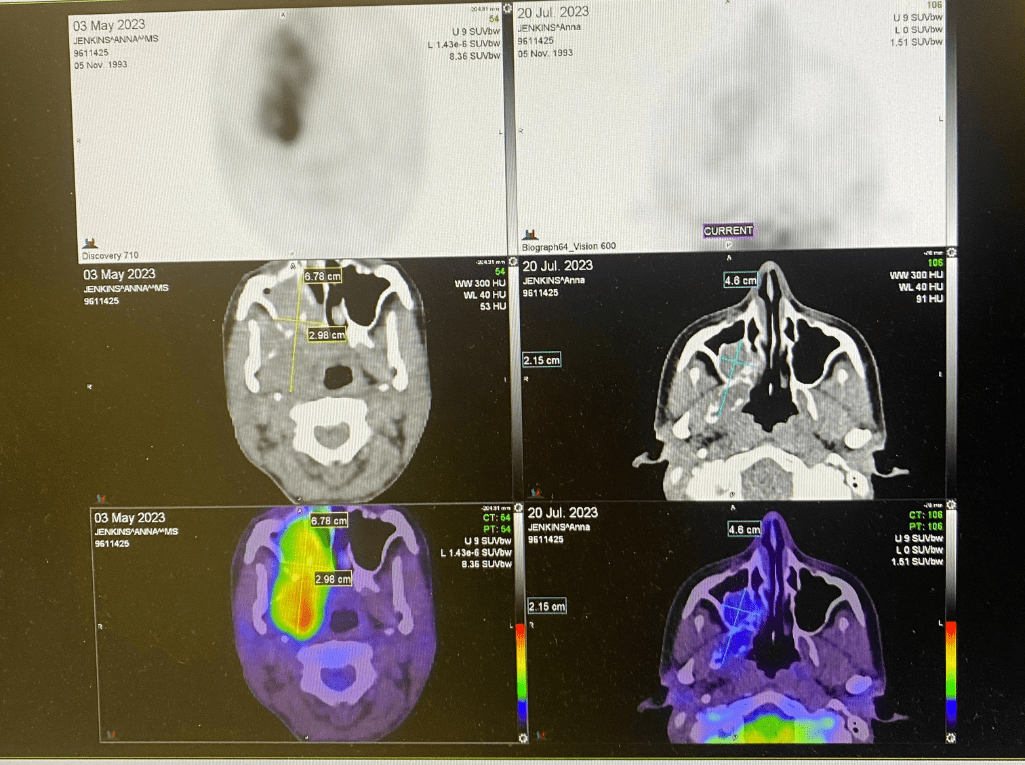
Her doctors at the hospital said she needed more tests. They turned her case over to Peter Mac.
Urgent treatment!
Within a few days, Anna had a complete diagnosis.
She had an extremely rare, aggressive, and fast-moving type of cancer, known as Ewing sarcoma.
Ewing sarcoma is a cancer that forms in the soft and connective tissues that hold the body together. It is one of many subtypes of sarcoma, and more often occurs in children.
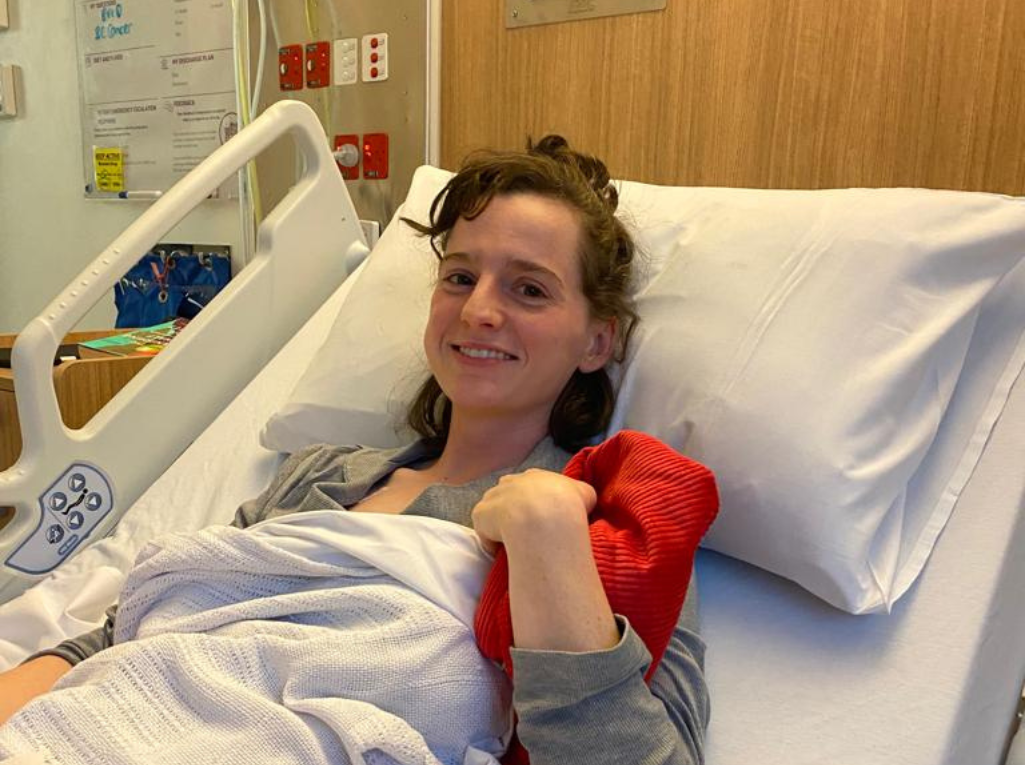
Being diagnosed with Ewing sarcoma as an adult is rare but being diagnosed with Ewing sarcoma of the face put Anna in an exceptionally small group of cancer patients.
Only 90 people in the world have ever been diagnosed with this type of cancer in this part of the body.
An unexpected side effect
Professor Jayesh Desai – a specialist in sarcoma at Peter Mac – says there are more than 100 subtypes of sarcoma. And because these different subtypes can occur in different locations and tissue types within the body, treating them can be complex and challenging.
“They told me the type of cancer I have is quite aggressive and it spreads fast. So, they had me in chemotherapy in less than two weeks. My oncologist told me it would be seven to eight months of chemo,” shared Anna.
Halfway through her course of chemotherapy, her medical team added radiation to Anna’s therapy – choosing radiation over surgery because of the lesser impact it would have on Anna’s face.
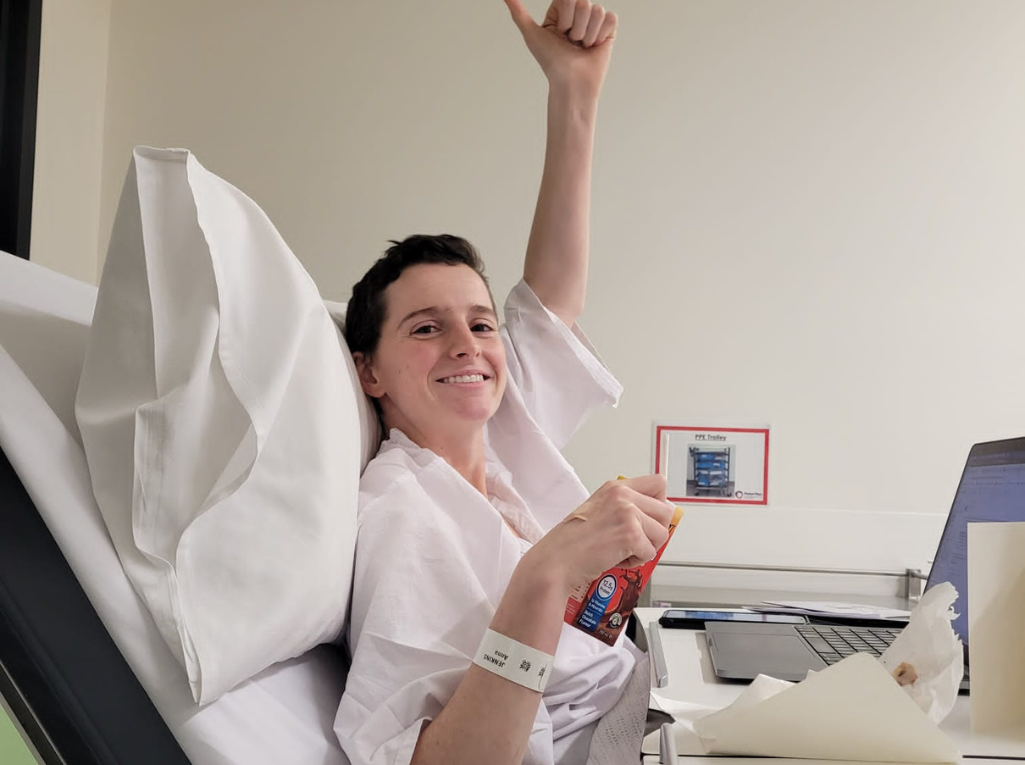
The treatment was vital to defeating Anna’s cancer. But she still went through pain, her immune system was depleted, and she was unable to eat for months.
Anne’s partner, Sian, says that watching Anna go through treatment was one of the hardest things she’s ever had to do. She told of one unexpectedly sad aspect of Anna’s treatment:
“Sharing a meal brings so much joy, but because of the side effects of Anna’s radiation, she couldn’t swallow for weeks. We couldn't even go and get a coffee together, let alone share a meal.”
Family rallies around
Anna gave up work and decided to move back home with her parents, knowing she had a gruelling course of treatment ahead.
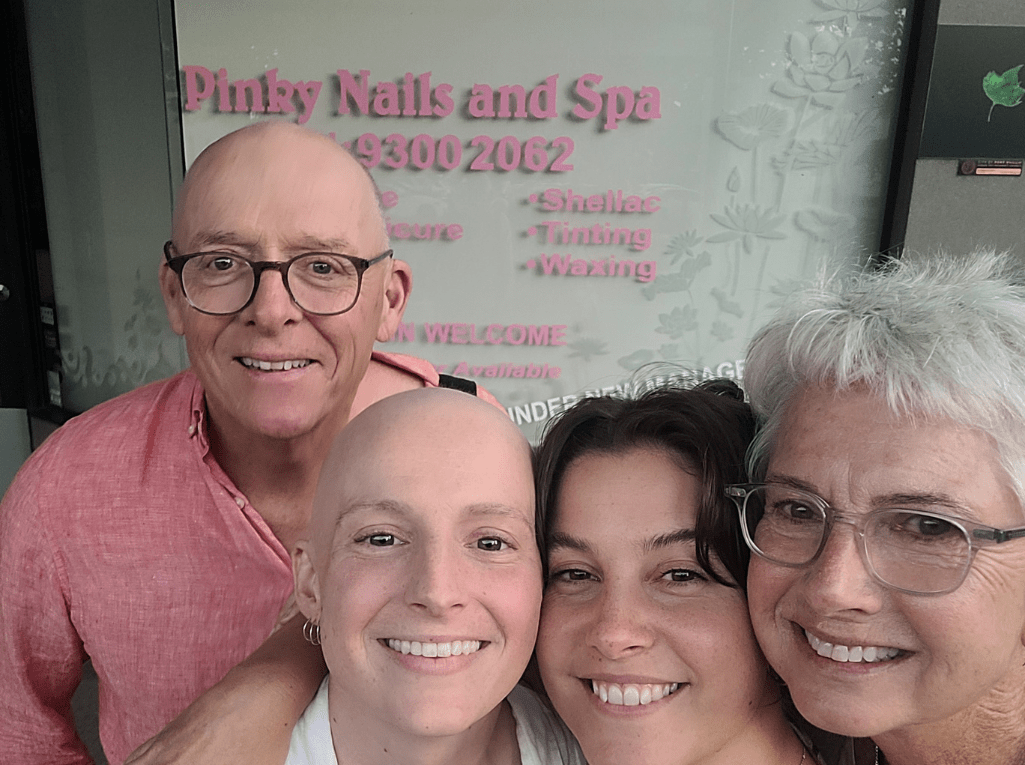
“I was going in (for treatment) every single day at one stage, and I don't know, just them being so ready to tailor their lives to help me with getting there and everything has been just... I feel so lucky to have that support network.”
Sian, Anna’s sisters, and the couple’s close friends rallied, giving Anna the space to focus on her treatment, and Sian the opportunity to support her.
“People were like, ‘What do you need? I'll be there at any moment.’ Yeah, it was kind of great,” Anna said.
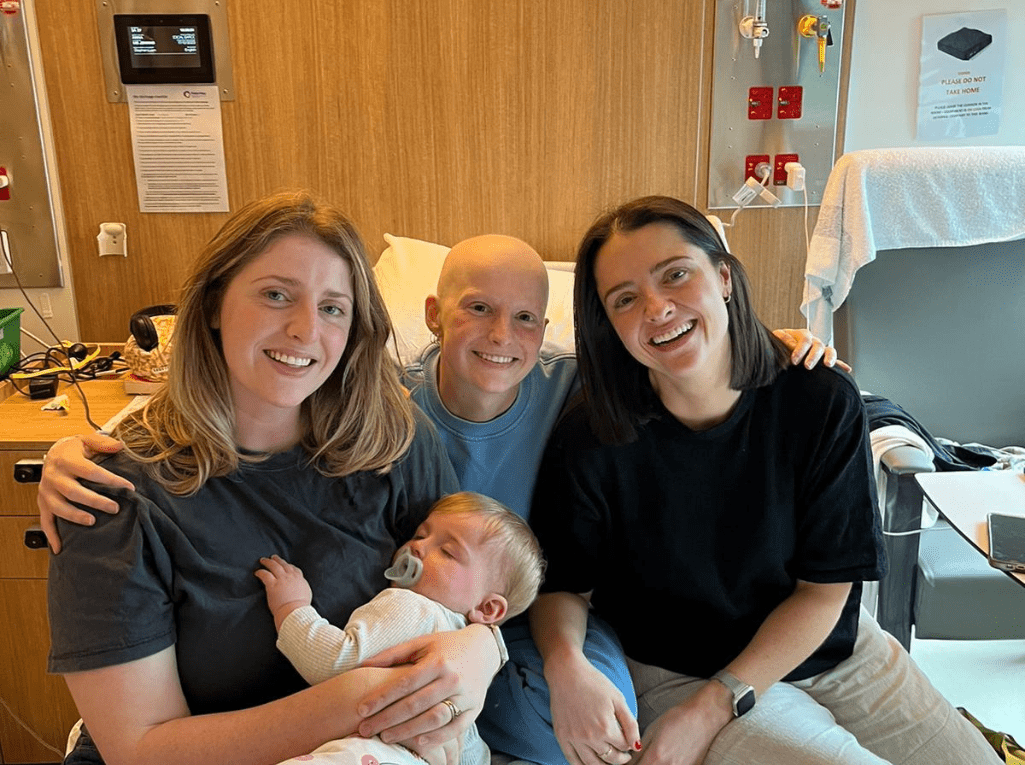
Anna’s ability to eat became an ongoing point of concern for her loved ones.
Sian told of mornings when she would have a coffee and Anna would occasionally have a cup of ice:
“And then one day, Anna said, ‘Can I have a sip of your coffee?’ And I was just like, ‘It's happening." And she had a sip of coffee and then the next day she had her own coffee.”
As treatment progressed and Anna’s symptoms improved, they began reintroducing other foods, “…stuff like yoghurt and mushy Weet-Bix.”
Sian remembers, “It was a very exciting time in this household because Anna's dad and I were like, "Is she going to do it? Is she having mashed potato tonight?" We were just so excited.”
Safe hands
Asked about her experience at Peter Mac, Anna was generous in her praise.
“I've always felt like I'm in really safe hands at Peter Mac. And whoever I'm communicating with or have anything to do with at Peter Mac, they feel really familiar with my case, which has been really comforting throughout the whole thing,” she said.
One of the people Anna had a lot to do with was her lead oncologist, Dr Stephen Luen, who explained that while her cancer was rare, there was a very clear treatment plan.
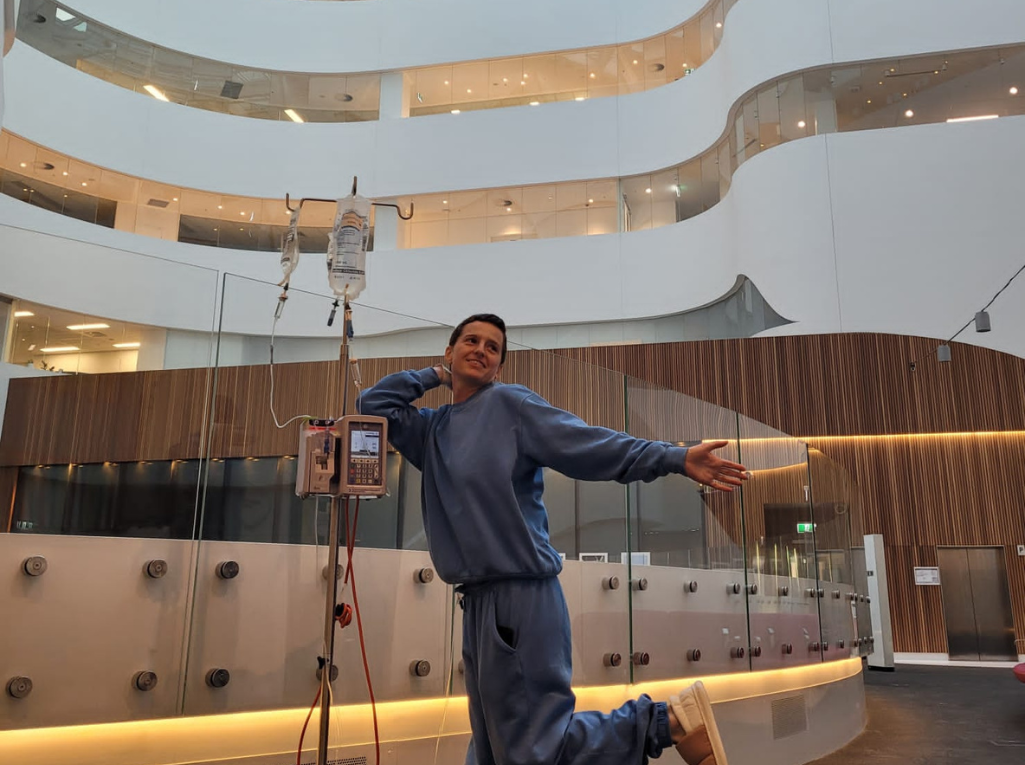
That treatment is only possible thanks to decades of research into sarcomas, which have over 100 different subtypes.
To create a sarcoma treatment plan, it’s essential to first understand which subtype a patient has, and what makes that subtype unique.
To aid that process, researchers at Peter Mac are using genomic testing. It’s a process that looks at a patient’s full genetic code to learn which gene mutations are present in their cancer cells. Based on this testing, precision treatments can be designed with the potential to be more effective, and have fewer side effects.
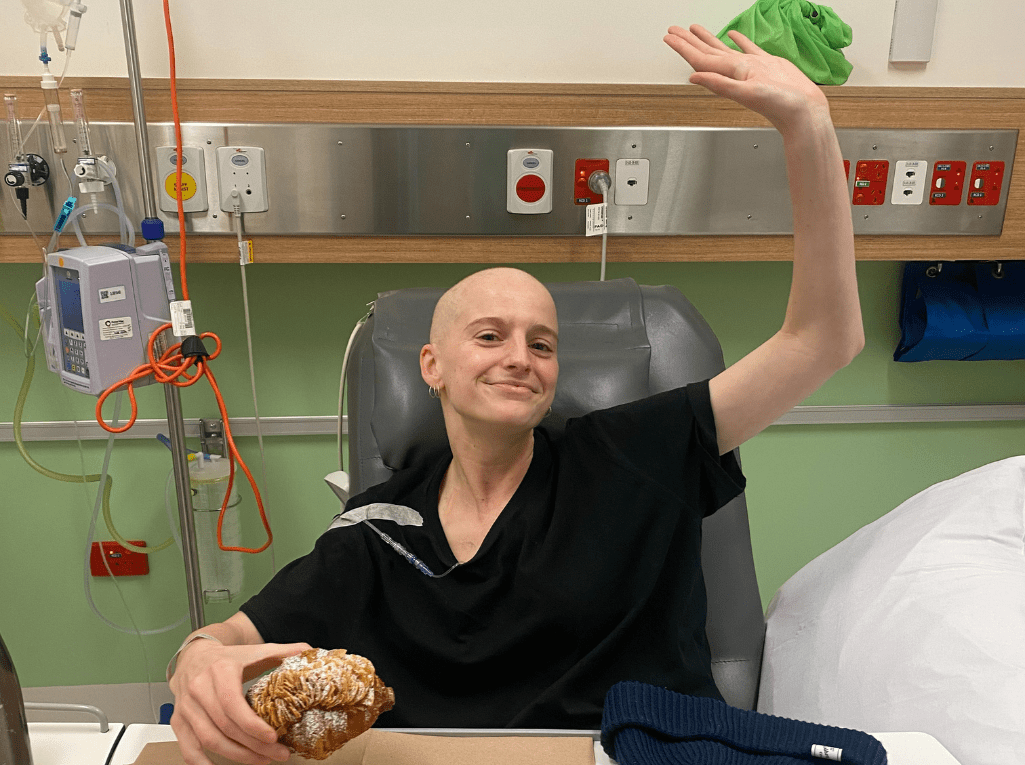
This approach, combined with other vital research, has dramatically improved the survival rate for sarcoma over the last 30 years. And could be the reason Anna is alive today.
At time of writing, Anna has completed her treatment – which she says, “… has obviously saved my life.”
Anna’s road ahead.
She and Sian have recently moved back into their own apartment, and have tentatively begun to dream and plan once again for their life together.
But Anna and Sian will continue to live with the threat and the fear of Anna’s cancer returning.
“We just have to live with the fears,” says Sian. “Anna is a big, big planner, trying to plan trips to go overseas, buy property, all these things. But she will need to have a scan every three months. It’s a huge impact on our life.”
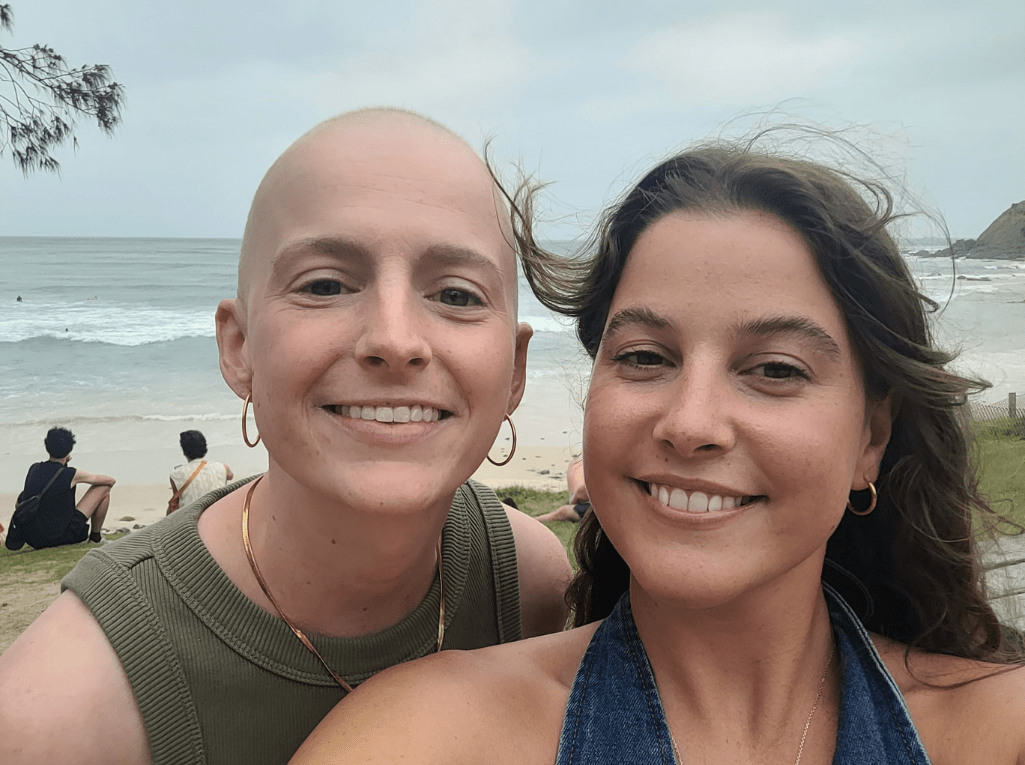
Anna explains:
“I can't necessarily get the same treatment that I've been having if my cancer returns, so to have to face that sort of possibility is really scary for planning the next part of my life.
“It feels a little bit like we can only plan in three-month blocks, and that will be an ongoing mental challenge, I think, for me, and for us. To just keep moving through life knowing that we kind of always have to face that question at those intervals.”
This fear is part of the reason Anna’s mother and partner Sian have decided to become Discovery Partners at Peter Mac. They’re making regular, monthly donations to help fund life-saving research that will discover new cancer treatments and cures for all types of cancers.
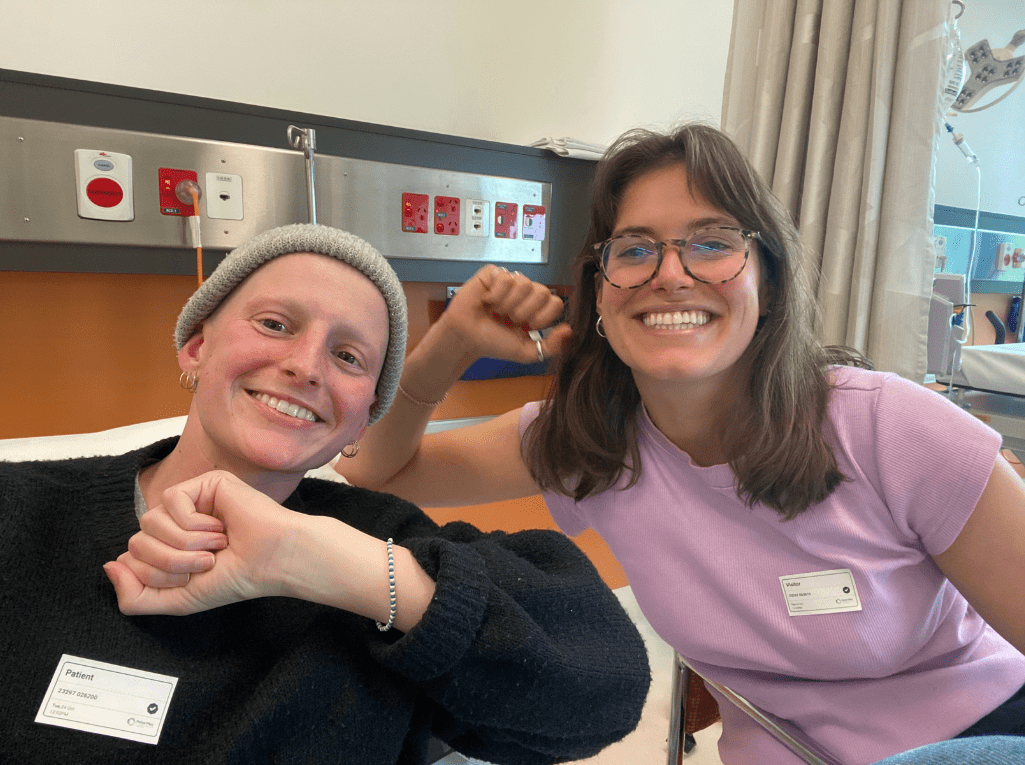
Asked what she might say to anyone thinking of supporting cancer research with a donation, Anna reflected on how suddenly and unexpectedly cancer had come into her own life, and how the same was true for so many people.
“I used to drive past this sign that said 1 in 2 people in Australia would have cancer by the age of 85. I didn’t know I was one of them.
“Without people who donate, there wouldn’t be enough research to treat the cancer that I have, let alone all the other cancers that there's research going on for.
“And I know that there are clinical trials that happen for lots of other cancers too at Peter Mac, and I know that they've saved a lot of lives, so the impact is immense across the board.”
Want to support people like Anna? You can make a donation to life-saving cancer research and help accelerate the discovery of new cancer treatments and cures.
@Follow us on Instagram (@SupportPeterMac)

